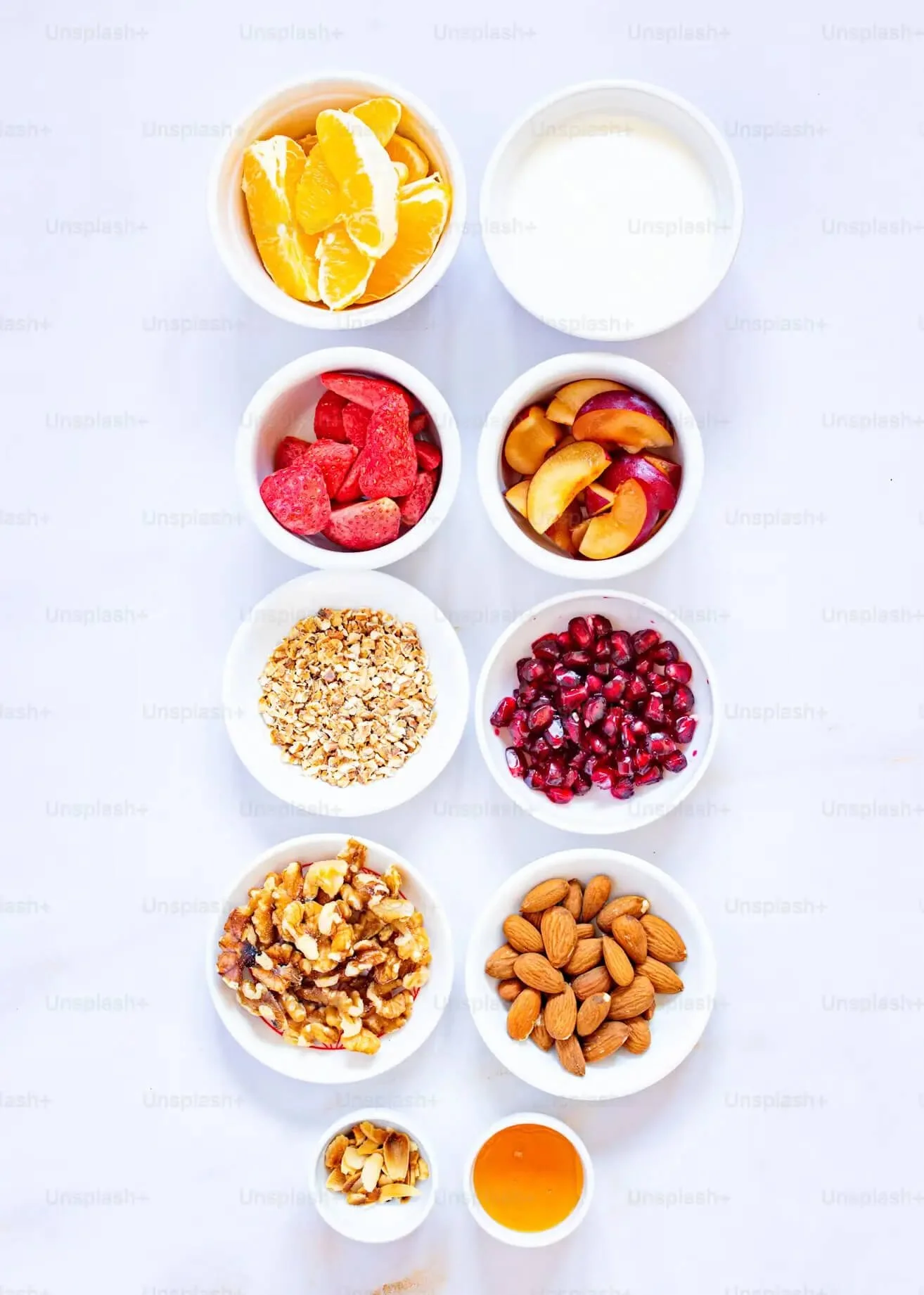Top Gut-Healthy Foods for 2025: What to Eat for Optimal Digestion
Gut health is no longer just a wellness trend—it’s a daily essential. From immune function and energy to weight management and mental clarity, a thriving gut microbiome supports nearly every aspect of your health.
In 2025, the focus on gut-healthy foods has evolved with new products, smarter ingredients, and a deeper understanding of how our diet shapes our digestion. Whether you’re managing bloat, supporting immunity, or trying to boost your metabolism, the right foods can make all the difference.
Want 1:1 support improving your digestion? Book a session with a Dietitian Nutritionist
Why Gut Health Matters in 2025
Your gut microbiome—the trillions of bacteria living in your intestines—acts like a control center for your entire body.
Here’s what a healthy gut supports:
Efficient digestion and nutrient absorption
Blood sugar and weight regulation
Mental clarity and mood (hello, serotonin!)
Stronger immunity
Lower inflammation and reduced chronic disease risk
What you eat either feeds the good bacteria or fuels the harmful ones. Choosing the right gut-healthy foods in 2025 means embracing fiber, fermentation, and anti-inflammatory power.
Trending Fermented Foods in 2025
Probiotic-rich foods are more innovative than ever. In 2025, new gut-loving products are making it easier (and tastier) to support your digestion.
Top fermented foods to try:
Kefir water – A non-dairy probiotic drink that’s fizzy, flavorful, and loaded with live cultures.
Gut shots – Small concentrated shots (usually ginger or beet-based) that support the gut-liver connection.
Raw sauerkraut and kimchi – Still microbiome royalty. Look for unpasteurized varieties in the refrigerated section.
Coconut yogurt – Now fortified with extra strains and no added sugar.
Miso and tempeh – High in probiotics and plant protein.
Curious about which brands I trust? Explore my favorite fermented products and probiotics on my Amazon storefront.
Fiber-Rich and Prebiotic Foods
Fermented foods introduce good bacteria—but prebiotics are the foods that feed them. Prebiotics are a form of fiber that fuel your beneficial gut microbes and help build long-term gut resilience.
Best prebiotic foods for digestion:
Oats
Chicory root and inulin
Jerusalem artichokes
Green bananas and plantains
Asparagus, leeks, onions, and garlic
Apples and flaxseed
Aim for 25–35g of fiber per day, from a variety of sources. You’ll not only improve digestion—you’ll support metabolism, hormones, and bowel regularity.
Need help building a fiber-rich diet? Work through personalized nutrition coaching
Anti-Inflammatory Gut Foods
Chronic inflammation disrupts the gut barrier, causes food sensitivities, and increases your risk of leaky gut syndrome. That’s why an anti-inflammatory gut diet is key.
Eat more of these polyphenol-rich gut protectors:
Berries (especially blueberries and raspberries)
Olive oil (cold-pressed and unrefined)
Green tea (rich in EGCG)
Dark chocolate (85%+)
Red cabbage and purple carrots
Turmeric and ginger
These foods help cool inflammation, feed your microbiome, and protect your intestinal lining from damage.
For more evidence, check out the Harvard School of Public Health or IFM.org for research on food and inflammation.
Foods to Avoid for a Healthy Gut
Just as important as what you eat is what you avoid. Many modern ingredients damage gut lining, promote bad bacteria, and trigger inflammation.
Gut-disrupting foods to limit:
Ultra-processed foods (chips, packaged snacks, frozen meals)
Sugar alcohols (like sorbitol, erythritol, xylitol) found in “low carb” snacks and gum
Emulsifiers (carboxymethylcellulose, polysorbate 80) used to improve shelf life
Excess added sugars
Artificial sweeteners like sucralose and aspartame
Even small changes—like swapping protein bars for whole food snacks—can reduce bloat, improve regularity, and balance gut bacteria.
Need help finding better swaps? Browse gut-friendly pantry staples and snack options in my curated list.
3-Day Sample Gut-Healing Meal Plan
Here’s a simple, whole-foods-based 3-day meal plan to nourish your microbiome and improve digestion.
Day 1
Breakfast: Overnight oats with chia seeds, flaxseed, and blueberries
Lunch: Lentil and spinach soup + sauerkraut side
Snack: Green banana with almond butter
Dinner: Baked salmon with roasted carrots and garlic quinoa
Day 2
Breakfast: Coconut kefir smoothie with mango, flaxseed, and greens
Lunch: Quinoa tabbouleh with chickpeas, parsley, and olive oil
Snack: Gut shot + 1 boiled egg
Dinner: Miso-glazed tofu with broccoli and soba noodles
Day 3
Breakfast: Scrambled eggs with asparagus and avocado
Lunch: Tuna salad lettuce wraps + fermented pickles
Snack: Apple slices with tahini
Dinner: Tempeh stir-fry with purple cabbage and brown rice
Drink plenty of filtered water
Chew slowly to support digestive enzymes
Add fermented foods in small portions to build tolerance
Small Swaps, Big Gut Rewards
Improving your digestion in 2025 doesn’t require a full diet overhaul. It starts with strategic swaps—adding gut-friendly foods while reducing inflammatory triggers.
Start today by:
Adding one fermented food per day
Eating a variety of colorful plant fibers
Swapping ultra-processed snacks for whole foods
Exploring supportive supplements if needed
A healthier gut means better energy, mood, skin, metabolism, and immunity—and it's all within reach.
Ready to Transform Your Gut Health?
I help clients create sustainable, bloat-free nutrition plans that support energy, hormone balance, and digestion—without restriction.
Book a gut health session with a Dietitian Nutritionist
Shop my recommended prebiotics, probiotics, and gut-friendly supplements

